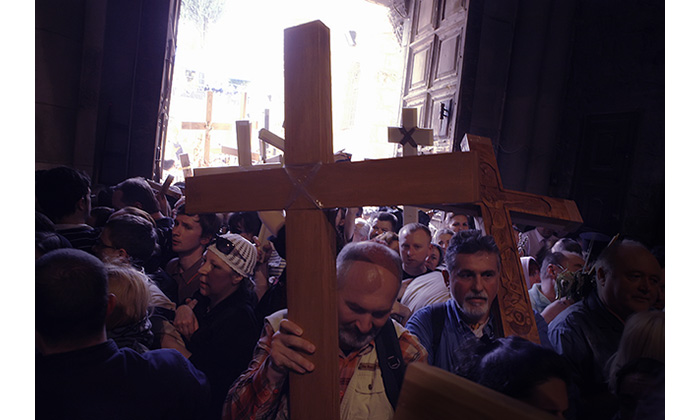Why does error have a free rein and why does God allow the wicked to disturb the existence of so many people?
First of all, before trying to understand, we need to put ourselves in front of the incomprehensible wisdom of God. One who is firmly anchored in God does not suffer any loss, even if attacked by a thousand waves and a thousand storms. On the contrary, he emerges stronger.
There is a reason, however, which I can venture to suggest.
In the first place, scandals are permitted so that the rewards of the righteous may not be diminished. That is why God said to Job:
“Do you not understand that I have treated you in this fashion so that your righteousness may be made manifest?”
Job 40:8
But there is another reason why the wicked are left at large: so that they may not be deprived of the advantages of conversion from their evil ways, which certainly could not happen if they had been rendered incapable of doing evil. In this way, St Paul, the penitent thief, the prostitute, the tax collector and many others were saved.
You may speak to me about those who have been scandalized. Well and good. But I then speak to you about those who have benefited from the scandal by winning glory, and I repeat my point: the existence of careless and lazy people would not justify leaving in a state of inferiority keen and wide-awake people who are capable of richly deserving their eternal recompense. A great wrong would be done to them if they were not given the chance to strive.
Excerpt from On the Providence of God, Chapter 12, by John Chrysostom, (Sources Chretiennes 79, Les Editions du Cerf, Paris, pp. I83ff., translation by Paul Drake).
Top image credit: Photo of Good Friday procession at the Church of the Holy Sepulchre in Jerusalem, from Bigstock.com, © by greggr, stock photo ID: 16016669. Used with permission.
John Chrysostom (c. 349-407) was an important early church father. He was born of noble parents in Antioch in 349. John acquired the skills for a career in rhetoric, as well as a love of the Greek language and literature. As he grew older he became more deeply committed to Christianity and went on to study theology. John became a hermit around 375. He was ordained a deacon in 381, and then ordained as a presbyter (priest) in 386 by Bishop Flavian I of Antioch.
Over the course of twelve years, he gained popularity because of the eloquence of his public speaking, especially his insightful expositions of Bible passages and moral teaching. Known as “the greatest preacher in the early church”, John’s sermons have been one of his greatest lasting legacies. The most valuable of his works from this period are his Homilies on various books of the Bible. He emphasised charitable giving and was concerned with the spiritual and temporal needs of the poor. He also spoke out against abuse of wealth and personal property. He founded a series of hospitals in Constantinople to care for the poor.
In 398, John was requested, against his will, to take the position of Archbishop of Constantinople. John was fearless when denouncing offences in high places. He was banished twice by the secular authorities. After his death, which occured in 407) he was named Chrysostom, which comes from the Greek word which means, “golden-mouthed.”



